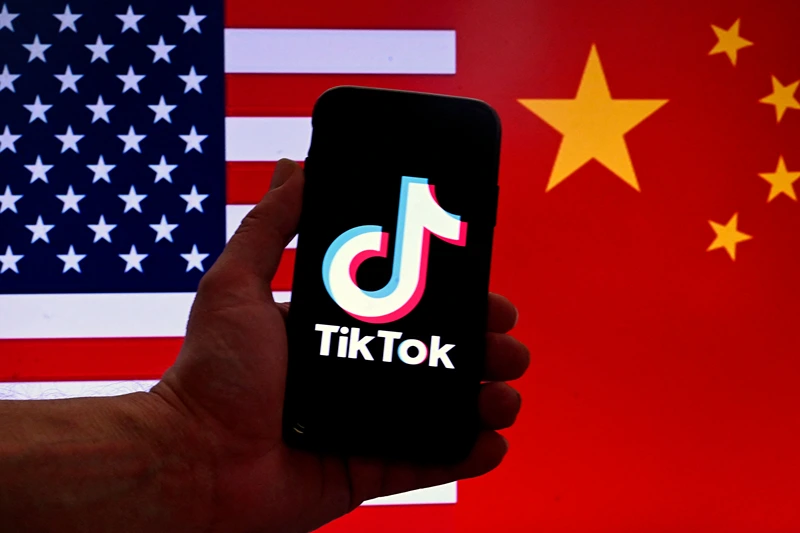TikTok Plans U.S. Shutdown If Supreme Court Doesn’t Halt Forced Sale – One America News Network

OAN Staff Blake Wolf
6:06 PM – Thursday, January 9, 2025
Representatives of TikTok have issued a warning that the platform could cease operations in the United States by January 19th, if the Supreme Court does not rule against the order or postpone the deadline for ByteDance—the Chinese parent company of TikTok—to divest the platform.
Advertisement
The Biden administration previously mandated ByteDance to sell TikTok, which boasts roughly 170 million users in the U.S., citing “national security” considerations.
This legislation was first enacted by President Joe Biden on April 24th, 2024, under the title “Protecting Americans from Foreign Adversary Controlled Applications Act,” which prohibits the distribution, maintenance, or updating of applications controlled by foreign adversaries.
The administration’s concerns reportedly arise from the substantial data that the Chinese application collects from its users, which could potentially be exploited by the Chinese government to “blackmail” American citizens for strategic advantage.
Additionally, the U.S. government has voiced worries that China might further its “geopolitical interests” by spreading “discord and misinformation during a crisis.”
“In addressing these significant national-security threats, Congress has not placed any limitations on speech, let alone those based on viewpoint or content. Rather, Congress has solely restricted control by foreign adversaries: TikTok can persist in operating in the U.S. and can share the same content from identical users unless its current owner completes a divestiture that removes the platform from the control of the [People’s Republic of China],” stated the Justice Department.
In contrast, TikTok users and creators claim that the proposed ban is “unconstitutional,” arguing that it breaches the “right to free speech” and expression.
“Seldom, if ever, has the court confronted a free-speech case that impacts so many individuals,” noted attorneys for TikTok’s content creators and users.
TikTok also mentioned that the possible ban “will silence the expression of applicants and countless Americans who utilize the platform to discuss politics, commerce, arts, and other public concerns.”
As the Supreme Court is set to hear arguments from both parties on Friday morning, President-elect Donald Trump has formally requested that the court postpone its ruling to allow his incoming administration time to pursue a “political resolution.”
Trump emphasized that his administration intends to tackle national security issues while simultaneously preventing a TikTok ban.
“President Trump takes no stance on the substantive merits of this issue. Instead, he respectfully requests that the Court contemplate postponing the Act’s divestiture deadline of January 19, 2025, while deliberating the merits of this matter,” wrote D. John Sauer, representing Trump.
Nonetheless, the Department of Justice (DOJ) sought to dismiss Trump’s request, asserting that it did not side with either party and that it would largely function as a temporary injunction, given that ByteDance has not demonstrated a substantial likelihood of winning the case.
“The Act does not call for increased First Amendment protections as it does not impose a burden on any identifiable First Amendment rights of ByteDance, its U.S. subsidiary, or TikTok’s users,” the DOJ attorneys explained.
“Nothing in the Act would prevent a post-divestiture TikTok from sharing the exact same content in the exact same manner. The Act focuses on control by a foreign adversary, not on protected speech,” they continued.
Moreover, Trump previously noted, “Why would I want to get rid of TikTok?” in a January 2nd post on Truth Social, where he revealed having received 2.4 billion views on TikTok—likely a significant factor in connecting his 2024 presidential campaign with a younger demographic.
The January 19th deadline for the Supreme Court’s ruling coincides just one day before Trump’s inauguration.
Stay updated! Get breaking news alerts delivered directly to your inbox. Subscribe here. https://www.oann.com/alerts
Advertisements below
